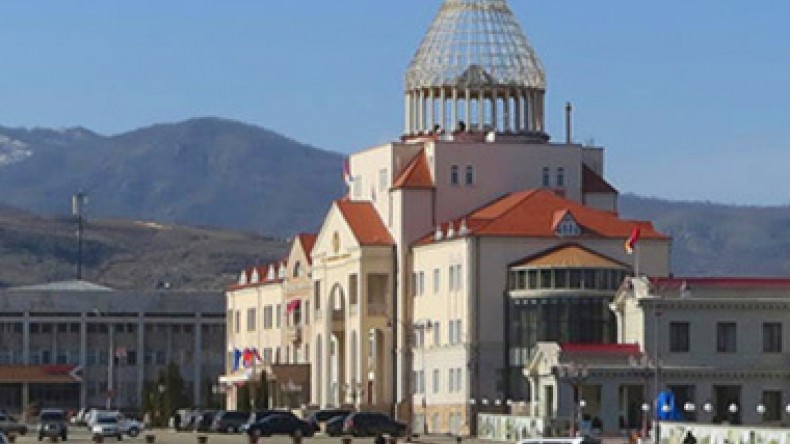
La Croix: In NKR capital, one can easily see priest talking with prime minister in ordinary café
“Day and night, platoon commander Eduard and his soldiers, all Karabakh Armenians, watch the adversary from the narrow slit trenches of their positions in the highlands above the Azerbaijani positions. The Azerbaijani soldiers’ covers can be noticed a 100 meters below through binoculars,” writes Olivier Talles in an article published in the French newspaper La Croix.
“The Azerbaijanis shot in our direction last night,” an Armenian soldier told the journalist. In those mountains, the gunnery may start shooting any moment.
According to the story, Eduard, the platoon commander, controls the frontline section protected with barbed wire and minefields, where weapon emplacements and zones for artillery are situated. Following the conflict, which took place between 1991 and 1994 and where the Armenians won, the armies from both sides made dozens-of-kilometers-long protective barriers along the line of contact.
Between the war and piece, the days in the trenches follow each other without any promise of a peaceful regulation of the conflict, Talles writes. The talks see no progress. Azerbaijan pushes forward the principle of the territorial integrity of states guaranteed by the UN. The NKR, with 150 thousand population, and Armenia point to the right of nations to self-determination, which is, too, provided by the UN Charter. They remind that the territory was annexed to Soviet Azerbaijan by Stalin in 1921 without consulting with the overwhelming majority of the population – the Armenians.
“An international recognition would certainly have a significant effect on our lives, our economy and development,” explains Bako Sahakyan, the president of the Nagorno Karabakh Republic and a former freedom fighter, who received the author in his office without any formalities. “But we have put a lot of effort to build a democratic state.”
The landscape in Artshakh with its fields, mountains and forests reminds a French agricultural district. Despite having an Azerbaijani rival on its side, the country gradually develops. Roads, schools, hospitals, water pipes are constructed here, and tablets are put expressing gratitude to the patrons from the Armenian Diaspora. The authorities encourage the representatives from the Diaspora to move in the NKR and organize big weddings for them stimulating population growth with subsidies.
“Having children means defending the homeland,” says lieutenant Grigoryan, who got 600 euros as a wedding gift.
The well-attended houses and green streets in Stepanakert, the capital city of the NKR, give a new look to the city. In the café next to the parliament building, one can meet a priest of the Armenian Apostolic Church sitting with the prime minister, the mayor, the president or a general, totally indifferent to the passers-by. “Nagorno Karabakh is socially balanced at maximum. The corruption is at minimum level here, and the country is governed better than ours,” a journalist from Armenia says.
Many Yerevan media representatives arrived in the NKR to cover the opening of The House of Paul Eluard francophone center in the frameworks of the French Days in Artsakh. A French delegation also took part in the event. It included MPs, mayors and representatives of Armenian organizations in France. Six arrondissements of France signed a Friendship Declaration with the NKR cities.
The French delegates’ emblematic visit to Stepanakert is an original attempt for the authorities to overcome the diplomatic and economic blockade. Artsakh is a primarily agricultural country. The army is another large “employer.” Armenia supports Artsakh’s state budget and military expenses. “Nagorno Karabakh is an integral part of Armenia,” quotes the journalist the words of the Stepanakert-born president of Armenia, Serzh Sargsyan.
The increasing number of the ceasefire violations, as well as the use of heavy artillery not only on the line of contact but also on the Armenia-Azerbaijan border concern the Western diplomats. The Azerbaijani dictator Ilham Aliyev, who has grown rich due to oil and gas, spends huge sums of money on the modernization of the army and “bribes” its society, which has not put up with the defeat in the war.
“We have not got the financial opportunities the adversary has, still we defend our land and our physical security,” the NKR president Bako Sahakyan says calmly.
Related:
Corriere della Sera: Artsakh is reviving country with reliable economy and hospitable people
Newsfeed
Videos






























